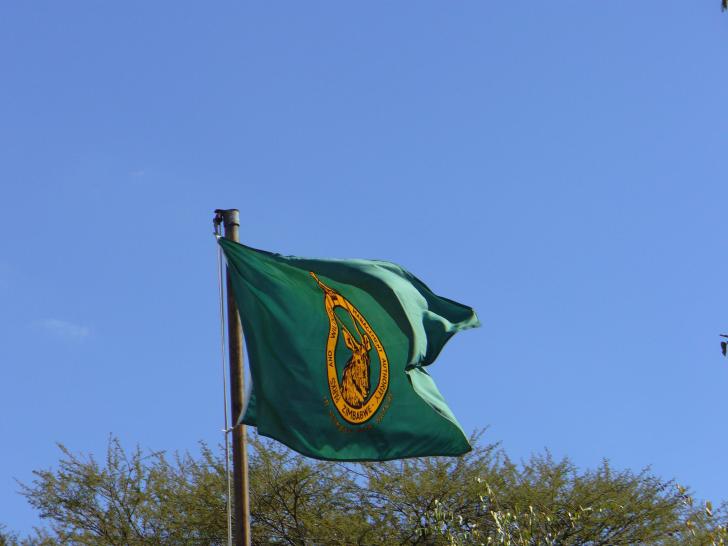News / National
Hwange faces ecological crisis
5 hrs ago | Views

Hwange National Park, Zimbabwe's largest wildlife sanctuary, is facing a looming ecological disaster as its overpopulation of elephants threatens to wipe out one of the park's most vital tree species - the Acacia tree.
Currently holding over 45,000 elephants, the park is operating at three times its sustainable carrying capacity of 15,000, putting enormous pressure on vegetation and destabilizing the entire ecosystem.
According to the Zimbabwe Parks and Wildlife Management Authority (ZimParks), the Acacia tree - a key food source for elephants - is on the verge of extinction within the park's boundaries.
"We have continued to say that our national park is overpopulated," said ZimParks spokesperson Mr Tinashe Farawo. "This is creating problems with elephants almost eating up all the acacia trees. If you look around, there are no new trees shooting up, and the consequence could be even bigger soon."
The Acacia tree plays a critical role in Hwange's savannah ecosystem, supporting not only elephants, but also giraffes, antelope, birds, and countless insect species. Conservationists warn that the disappearance of these trees would trigger a ripple effect of biodiversity loss, beginning with the elephants and spreading across the food chain.
"Without natural regeneration, the park's ecological balance may collapse," said one environmentalist. "Elephants are ecosystem engineers, but in these numbers, they become ecosystem destroyers."
The food shortage within the park is already pushing elephants into nearby communities, leading to increased crop destruction, damaged infrastructure, and even fatal confrontations with local villagers.
"This is not just a wildlife issue - it's now a social and economic threat," warned Farawo. "When elephants stray into villages, lives and livelihoods are at risk."
Zimbabwe, along with other Southern African countries, has long called for practical elephant population control measures, including regulated hunting and translocation. However, these efforts have been repeatedly blocked by international lobby groups, particularly anti-hunting activists who oppose culling and the ivory trade under any circumstances.
Wildlife authorities argue that such opposition ignores the realities on the ground, where unmanaged elephant populations are decimating habitats, fueling human-wildlife conflict, and overburdening conservation resources.
"We are bearing the brunt of decisions made in foreign boardrooms," said Farawo. "The international community must allow us to manage our wildlife in a sustainable way."
Experts say without immediate and science-based interventions, Hwange National Park could lose significant portions of its woodland - particularly Acacia species - within the next few years. This would not only diminish biodiversity but could also impact tourism, a key sector in Zimbabwe's economy.
As the crisis deepens, pressure is mounting on both local authorities and international conservation bodies to find a balanced solution that protects both animals and their environment - before it's too late.
Currently holding over 45,000 elephants, the park is operating at three times its sustainable carrying capacity of 15,000, putting enormous pressure on vegetation and destabilizing the entire ecosystem.
According to the Zimbabwe Parks and Wildlife Management Authority (ZimParks), the Acacia tree - a key food source for elephants - is on the verge of extinction within the park's boundaries.
"We have continued to say that our national park is overpopulated," said ZimParks spokesperson Mr Tinashe Farawo. "This is creating problems with elephants almost eating up all the acacia trees. If you look around, there are no new trees shooting up, and the consequence could be even bigger soon."
The Acacia tree plays a critical role in Hwange's savannah ecosystem, supporting not only elephants, but also giraffes, antelope, birds, and countless insect species. Conservationists warn that the disappearance of these trees would trigger a ripple effect of biodiversity loss, beginning with the elephants and spreading across the food chain.
"Without natural regeneration, the park's ecological balance may collapse," said one environmentalist. "Elephants are ecosystem engineers, but in these numbers, they become ecosystem destroyers."
"This is not just a wildlife issue - it's now a social and economic threat," warned Farawo. "When elephants stray into villages, lives and livelihoods are at risk."
Zimbabwe, along with other Southern African countries, has long called for practical elephant population control measures, including regulated hunting and translocation. However, these efforts have been repeatedly blocked by international lobby groups, particularly anti-hunting activists who oppose culling and the ivory trade under any circumstances.
Wildlife authorities argue that such opposition ignores the realities on the ground, where unmanaged elephant populations are decimating habitats, fueling human-wildlife conflict, and overburdening conservation resources.
"We are bearing the brunt of decisions made in foreign boardrooms," said Farawo. "The international community must allow us to manage our wildlife in a sustainable way."
Experts say without immediate and science-based interventions, Hwange National Park could lose significant portions of its woodland - particularly Acacia species - within the next few years. This would not only diminish biodiversity but could also impact tourism, a key sector in Zimbabwe's economy.
As the crisis deepens, pressure is mounting on both local authorities and international conservation bodies to find a balanced solution that protects both animals and their environment - before it's too late.
Source - ZBC











































